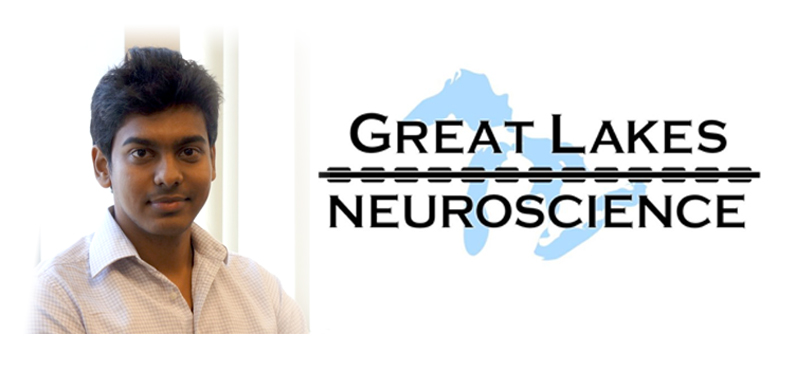Q/A WITH SAI PRASHANT BOYREDDY, PRESIDENT & CO-FOUNDER, GREAT LAKES NEUROSCIENCE
Earlier this month, we at the Illinois Science & Technology Coalition (ISTC) released new data on the record growth of startup activity at in-state universities through our Illinois Innovation Index. Over the past five years, students and faculty of Illinois’ universities have founded 942 startup companies, raising $878 million in funding. These figures represent tremendous growth in startup activity compared with the previous five-year period—when around 400 startups were launched, raising less than $300 million in funding.
This year, the Index also tracked university-supported startup founders, with an estimated 4-in-10 startups founded by foreign-born students. This finding is consistent with nationwide trends in entrepreneurship, where one-third of venture-backed startups—and more than half of startups valued over $1 billion—have been founded by immigrants.
In this “Beyond the Index” issue of Catalyst, foreign-born entrepreneur Sai Prashant Boyreddy talks about his experiences trying to grow a startup while navigating the US immigration system. Sai is President and Co-Founder of Great Lakes Neuroscience (GLN), a biopharmaceutical startup spun out of the Illinois Institute of Technology (IIT) that is developing innovative therapies for neurodegenerative diseases such as ALS.
Tell us about your background. Has becoming an entrepreneur always been a goal for you?
I come from a business oriented family and have always been interested in becoming an entrepreneur. I was working as an analyst for a financial institution in India when I decided to pursue an MBA abroad in the US. My goal was to become an entrepreneur once I finished my degree, either in the US or back home in India. I ended up choosing to attend the MBA program at IIT’s Stuart School of Business. It was while I was working on my MBA that I began pursuing entrepreneurship as well.
How did you meet your co-founders and what led you to start Great Lakes Neurosciences?
While pursuing my MBA, I was encouraged by faculty at the Stuart School to participate in the Neuro Startup Challenge, which is sponsored by the NIH’s Centers for Accelerated Innovations. The competition brought together student teams from universities across the country to develop a business plan to commercialize one of NIH’s patents. Through my participation in the competition, I was introduced to my co-founders who were both science and business students from IIT. Together, our team went on to win the Challenge.
After the competition, we had to decide whether we should license the NIH patent and move forward with the venture. Based in part on positive feedback from the competition judges, we decided there was a strong opportunity to move forward with our business plan and create a startup. That’s how Great Lakes Neuroscience was born.
Once you founded GLN, what resources did you leverage to get the startup off the ground?
Once we decided to found GLN, we received a lot of support from IIT. To start, IIT was able to help us secure our license from the NIH, a process that took nearly a year. We also applied for legal help through the Chicago-Kent Patent Hub (run by IIT’s Chicago-Kent Law School). The Patent Hub connected us with Neal Gerber Eisenberg, an IP law firm that provided us with legal support pro bono until we received funding. Finally, when we began looking to raise money, the University Tech Park at IIT was able to connect us to a network of potential investors, which we leveraged when raising our $325,000 seed round.
Beyond the support we received from IIT, we also participated in iBIO Propel and Chicago Innovation Mentors. Participating in these programs helped guide or company, while also allowing us to attract investors. In the end, I think we received half the support we needed from IIT, and the other half from Chicago’s entrepreneurship community.
Your founding team at GLN includes several foreign-born founders. How challenging has is been to navigate the immigration system while building your company?
Of our seven original co-founders, four are foreign-born entrepreneurs. Of the four foreign-born co-founders, two received PhD’s in STEM fields, while myself and another of my co-founders received MBA’s from the Stuart School. As MBA graduates [a non-STEM field], we’ve had more difficulty navigating the immigration system.
After graduation, we were allowed to stay for 12 months through the Optional Practical Training (OPT) program. Unfortunately, during most of that time, we were working with the NIH to license their patent, and only began raising money toward the end of the 12 months. When our 12 months expired, we were forced to travel back to India and return on B-1/B-2 business travel visas. These visas only give us permission to visit our team, talk to investors, or attend conferences. This means I come to the US for a couple months to meet with the team and talk to investors, but then I must travel back to India when we’re working on our product.
It’s been very challenging (and expensive) to manage everything while traveling back and forth. We’re trying to manage it the best we can.
How would enacting the International Entrepreneur Rule impact your status? What could be done to make it easier for foreign-born founders to grow their companies in the US?
I’ve investigated the International Entrepreneur Rule. There’s a minimum investment amount to qualify, which we would meet—but the requirement is also that the investment must come from US-based investors. Right now, a lot of our investment comes from overseas. However, I don’t see why that requirement exists. We’re bringing outside investment into the country—that seems like a positive thing.
What a lot of foreign-born founders would like is a visa that only allows them to stay in the country to work for their own company. This would allow us to stay only to grow our own ventures. If those ventures thrive—raise money, hire employees, pay taxes—it’s a benefit to the US. If the venture doesn’t grow, then the visa wouldn’t be extended. It would be a no-risk situation for the US.
What’s next for GLN? And how does your immigration status impact your role moving forward?
We’ve recently completed phase one of our in vivo preclinical studies on mice with symptoms of ALS. We’re also working on some follow-up studies, which should be completed in the next couple months. Once we’ve collected data from these studies, we’ll be presenting it to new potential investors. We’re looking to raise a pre-series A round so we can complete the remainder of our preclinical studies.
By the time our current studies are complete, my visa will expire and I’ll need to leave the country. When I’m forced to leave, I plan to use that time to look for investors overseas. The team will also look for investors in the US, but it’s unclear how receptive they will be when the president of the company is not able to be physically present.
It’s challenging, but it’s always been challenging. We’ve worked really hard to bring the company to where it is today. From an immigration standpoint, I can’t envision much change in my status unless there’s serious immigration reform. We’ve gotten used to it and we’re not complaining about it. We are up for the challenge. We’ve proven a lot of people wrong by getting to where we are and are very confident that we can continue to build our company.
WATCH:
WHAT WE’RE READING:
- High-tech startups finding a better home in Illinois-but more can be done [Chicago Sun-Times]
- Tullman to lead Illinois Tech’s Kaplan Institute [Crain’s Business Chicago]
- Leader of Polsky Center, University of Chicago’s innovation hub, to step down [Chicago Tribune]
- Debunking 3 of the biggest myths about Midwest tech [VentureBeat]
- Argonne selects innovators from across nation to grow startups [Eureka Alert]
- Illinois venture funding off to a hot start in Q1 [Chicago Inno]
- Number of women entering STEM fields growing [Chicago Tribune ]
- Diabetes management startup Livongo raises $105M [Chicago Inno]
- Info-security company Kenna gets $25M in funding [Chicago Tribune]
- Illinois nonprofits hope mentors and real-world projects will improve diversity in STEM classes [VentureBeat]

